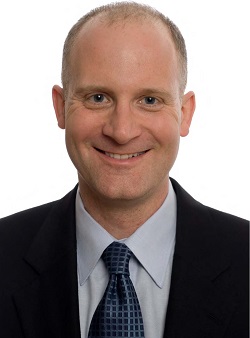Daniel Sellen
 Director, The Joannah & Brian Lawson Centre for Child Nutrition
Director, The Joannah & Brian Lawson Centre for Child Nutrition
“There are so many relevant skill sets and areas of expertise that we have to engage, when working to protect and promote health through enhanced support for good nutrition and care of infants and children. There is no single way of approaching the many implementation science questions and program design challenges. There is no single set of solutions — the work is truly interdisciplinary,” says Daniel Sellen, director of the Joannah & Brian Lawson Centre for Child Nutrition.
Read Professor Sellen's welcome message.
An evolutionary behavioural biologist, human ecologist, and nutritional anthropologist by training, Sellen brings a wealth of experience in global health research, with a particular focus on how caregivers tackle the feeding and care needs of infants and young children in low-income settings, particularly in the Global South. He hopes to help the Centre find scalable solutions to speed up progress in preventing malnutrition early in life among more infants and children globally to support well-being of whole families.
“In our work, we try to find more effective ways to engage people caring for very young kids each day. As partners in delivering better nutrition, [we try to find] them better kinds of support to guide their efforts in caring and feeding young family members,” explains Sellen. “We’ve got to get the government, industry, and civil society working together to create both demand and supply of safe, fair, and healthy nutrition options for families around the world. By building the trust among different stakeholders, and holding all actors accountable, it is possible to overcome the global burden of malnutrition.”
One of the main challenges in child nutrition in low-income settings is translation of existing knowledge into practical solutions. “They have to be affordable, simple — relying on existing assets — and have to benefit a lot of people quickly,” he says.
Sellen also points out that another task in the field of child nutrition is to make healthy infant, child feeding, and diet an attainable priority for families and consumers everywhere, especially where other pressing needs compete for scarce caregiver time and resources. “We have to keep front and centre the proven connections between good nutrition and children’s well-being, including staying healthy, doing well in school — eventually being able to find work, and so on. Benefits of good nutrition have to make sense socially and economically, both to caregivers at the grassroots and to policymakers, politicians, and business people. It is hard to advance the cause of research on delivering good early nutrition if we do not have a roadmap for connecting nutrition with our social and economic goals at every level: personal, family, community, whole societies and nation states.”
He leads a number of research projects in Africa. In Kenya, his team is testing new ways of supporting caregivers of infants to prevent poor growth — with all of its negative health consequences — by providing peer support and advice on breastfeeding to women using cellphones.
“Counterintuitively, we are trying not to innovate, in a technological sense, but rather build on existing assets in creative ways,” says Sellen. His approach is to use the infrastructure that is already in place, such as caregivers’ personal or family cellphones, as well as existing nutrition education resources at the local hospitals, which may be difficult to access on a day-to-day basis, especially for families living in remote areas. Next steps are to include guidance on safe and healthy foods for breastfed, older infants to reduce micronutrient deficiencies.
By providing an easy connection between the caregivers and sources of reliable information that make practical and economic sense, Sellen’s team helps to deliver nutrition knowledge and support and improve health outcomes for infants and young children.
“What could be more important than childhood nutrition, health, and human development?” asks Sellen. “This field is really a gateway to the future that connects humans with the rest of our ecosystem. It is a privilege to work every day with many wonderful partners, students, and colleagues on something so important.”
At a glance:
Daniel Sellen, PhD
Research Interests
- Implementation science to improve infant feeding practices, maternal, and child nutrition security
- Addressing the cause of mismatch between breastfeeding and complementary feeding recommendations and practice
- Contemporary health implications of the evolution of human lactation biology (breastfeeding and complementary feeding)
Appointments
- Director, Joannah & Brian Lawson Centre for Child Nutrition, University of Toronto
- Senior Resident Scholar, Centre for Global Child Health, Hospital for Sick Children
- Professor, Department of Anthropology, University of Toronto
- Professor, Department of Nutritional Sciences, University of Toronto
- Professor, Division of Social & Behavioural Health Sciences, Dalla Lana School of Public Health, University of Toronto
Contact
- Phone: 416-978-8112
- Email: dan.sellen@utoronto.ca
See Daniel’s profile on the Department of Anthropology website for more information.
